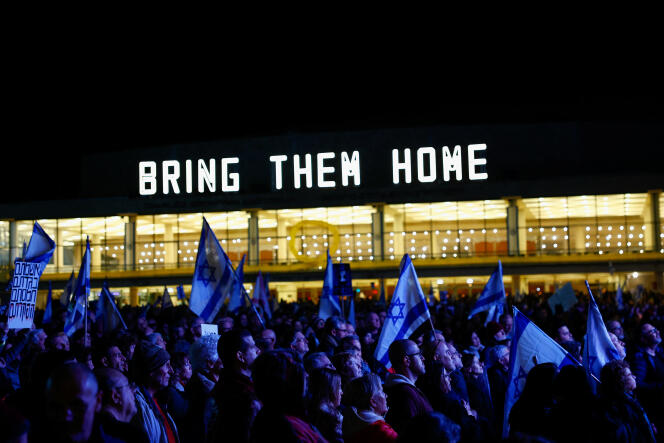


As the war in Gaza enters its fifth month, Israeli Prime Minister Benjamin Netanyahu rejected, on Wednesday, February 7, a ceasefire and hostage release deal set out by the Islamic resistance movement. The previous day, Hamas had set out its conditions for a proposed framework agreement put forward by Israel. "Continuing pressure, military pressure, is a necessary condition. Surrendering to Hamas's delusional demands will only ask for another disaster for the state of Israel, another massacre," following the attack carried out by the Islamic movement on October 7, 2023, which killed nearly 1,200 Israeli civilians and soldiers.
Netanyahu instead promised nothing less than a "complete victory," which he considered to be within the army's grasp in a few "months." The Israeli army believes it has permanently weakened Hamas by dismantling 18 of its 24 battalions. But it has not struck the movement's main leaders, and Hamas's ability to influence the post-war period is still immense thanks to what remains of its security apparatus and its political pull among Palestinians, which forces all factions to reckon with it. Netanyahu therefore wants to wear Hamas down even further and push back any discussion of the political future of Gaza and the Palestinian territories.
The prime minister's stance has provoked a sense of urgency among the families of the 136 hostages held in Gaza, 31 of whom have been informed of the death of their loved ones – whether as a result of the October 7 attack, mistreatment by Hamas or bombardment and raids by the Israeli army remains unknown.
On Wednesday evening, five women freed during the first truce, in November 2023, emphasized that the lives of the other hostages still hang in the balance. "I'm very afraid and I'm very worried because if you continue on this path to overthrow Hamas, there won't be any more hostages to free," declared one of them, Adina Moshe, addressing Netanyahu.
Netanyahu threatened to extend the ground operation to Rafah, in the south of the enclave, where over a million Palestinians have been forced to gather. Rafah sits on the Egyptian border, where the Israeli army is already bombing intensively. Without close coordination with the Egyptian army, this colossal undertaking could lead to exchanges of fire on both sides of the border and drive Palestinians to flee into Egypt. US Secretary of State Antony Blinken, on a visit to Jerusalem on Wednesday, warned Netanyahu against such an escalation.
You have 75% of this article left to read. The rest is for subscribers only.
